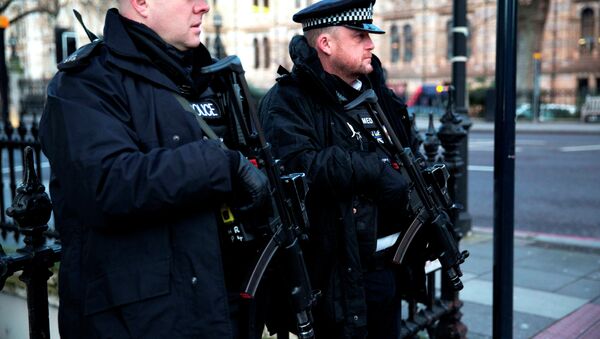The fatal gun attack on the offices of Charlie Hebdo or the hostage siege at a Jewish supermarket in Paris — or the street knife attack on Fusilier Lee Rigby in London; today's terror attacks are crudely coordinated but with similar consequences.
Vigilante terrorism: targets people, not population
Vigilante terrorism might lead to fewer casualties and deaths but it is still very pernicious because it is so difficult to stop, according to Jonathan Birdwell, a specialist on radicalization and Islam at think tank Demos. His comment follows a warning from the former head of Britain's security service that the UK could descend into ‘vigilantism' unless tougher security and surveillance measures are adopted.
Lord Evans of Weardale, who served with the MI5 for 33 years told the House of Lords that the threat from highly trained terrorists was as big as it was following 9/11.
"Inadequate security will breed vulnerability and fear and that in turn will tend to limit people's ability to contribute to civil society, will tend to provoke vigilantism and will tend to diminish people's ability to exercise the very civil liberties and human rights that we wish to sustain".
The government and MI5 believe up to 600 young men and women have travelled to Syria or Iraq to train as terrorists; almost half of them are expected to have returned to Britain. Why they travel there in the first place, still remains unclear. Jonathan Birdwell told Sputnik UK that he believes some of the young people who want to travel to Syria are narcissistic and have thrill seeking tendencies: "They get to wear a balaclava and clutch a Kalashnikov, and post a picture of themselves in Syria on social media saying ‘look at me I'm a badass' which gives them a status they would never have achieved in the UK".
However, the number of British born jihadis who have traveled to Syria is more likely to be 2000, according to Danny Makki, a Syrian political activist and researcher in Middle Eastern extremist groups. Makki says that Britain has the worst rate in the whole of Europe for the number of foreign fighters in Syria. And it's the return of these British jihadis that pose the greatest threat to the UK:
"250 of these extremists have already returned. This is creating real fear in the security services in the UK".
The Counter Terror and Security Bill is currently being debated in parliament. Speaking during its second reading, Lord Evans, who has welcomed the legislation, said the events in Iraq and Syria have given extremist networks in the UK "a jolt of energy". The new bill includes new capabilities to monitor and control people thought to be a threat to the UK and to seize passports from British citizens suspected of engaging in terrorist activity at the border.
In a statement to MPs in the House of Commons, Home Secretary Theresa May appealed to all parties to support the bill. "This important legislation will strengthen our powers to disrupt their ability to travel abroad to fight — and control their ability to return here; and to deal with those in the UK who pose a risk".
Mrs. May told MPs it had emerged that the two brothers who had attacked the journalists at the office of Charlie Hebdo magazine, had affiliations with the men who killed Fusilier Lee Rigby in London in 2013.
However, according to Jonathan Birdwell, a specialist on radicalization and Islam at think tank Demos, even if the government and secret services adopt those capabilities it will still be difficult to anticipate and prevent vigilante style terrorism.
"There could be the possibility of an early warning system if you did monitor communication, like a posting on social media prior to undertaking any action — that said, it's extremely difficult for the security services to anticipate it and thwart those kind of attacks", says Birdwell. "I'm dubious that gaining extra capabilities will be effective at preventing vigilante terrorism".
Theresa May told MPs that the threat level in the UK remains at severe: "This means that a terrorist attack in our country is highly likely and could occur without warning".




